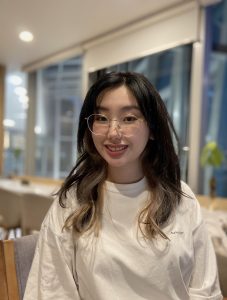
By Tran Nguyen
“If you were a person with any heart, you would be shocked at how many garment workers are still mistreated with a terrible working condition,” Jamie Hayes said as she explained to me why she chose slow fashion over other mainstream fashion models.
Slow fashion is a term referring to the ethical practices of trading fashion. Nowadays, we usually hear about sustainable fashion and green trading on the news, especially after the 2013 Rana Plaza accident where five garment factories collapsed in Bangladesh. Before that tragedy, Jamie Hayes had already been on the journey since 2009 with her immigrant and labor rights works. Jamie has shown an interest in fashion and making garments from a young age, from making clothes for her cat Halloween costume to knitting with her grandmother. Even though she majored in English Literature in college, she did a second major in fashion after recognizing her passion.
Starting from that point, Jamie has devoted herself to fashion through her time working at a boutique in St. Louis, then a customizing handbag store at 1145 Lil Studios. Through working in the fashion industry, especially in a garment factory, Jamie slowly realized the lack of proper ethical practice in most garment factories. While looking for a garment factory for her brand, Jamie witnessed the terrible working conditions of garment workers right here in Chicago. Thus, that experience started her fight for labor rights through the slow fashion philosophy emphasizing material quality, fair trade for workers, and timeliness.
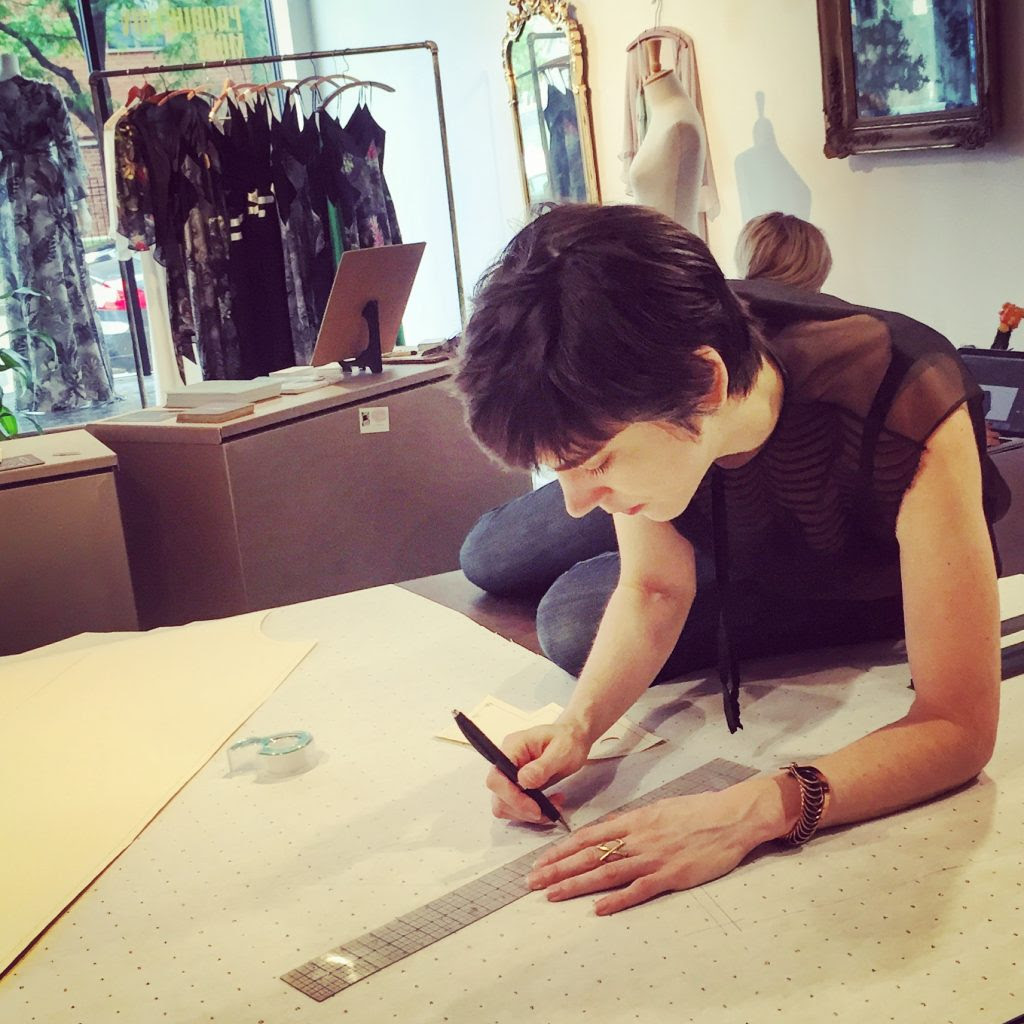
Jamie doing some designing works
Transparency is a critical aspect of Jamie’s value in her brand, Production Mode. Oftentimes, brands try to hide the not so “glamorous” side from the consumers. Hence, brands take “transparency” out of the equation for a better public image. However, with the growing criticisms for the brand’s lack of transparency, many brands are now held accountable for not showcasing their garment manufacture and employee’s working conditions. In Production Mode, Jamie’s clothing brand, transparency is the business’ key value and philosophy. Through the brand’s transparency, garment workers are more guaranteed a living wage and better working conditions. The garment industry remains one of the most exploitive environments for workers. In some circumstances, brands don’t even know about the contractor’s dreadful working conditions; however, this doesn’t excuse them from their responsibility. As a result, transparency pushes the brand to acknowledge the dark side of the garment industry and act upon these terrible working conditions.
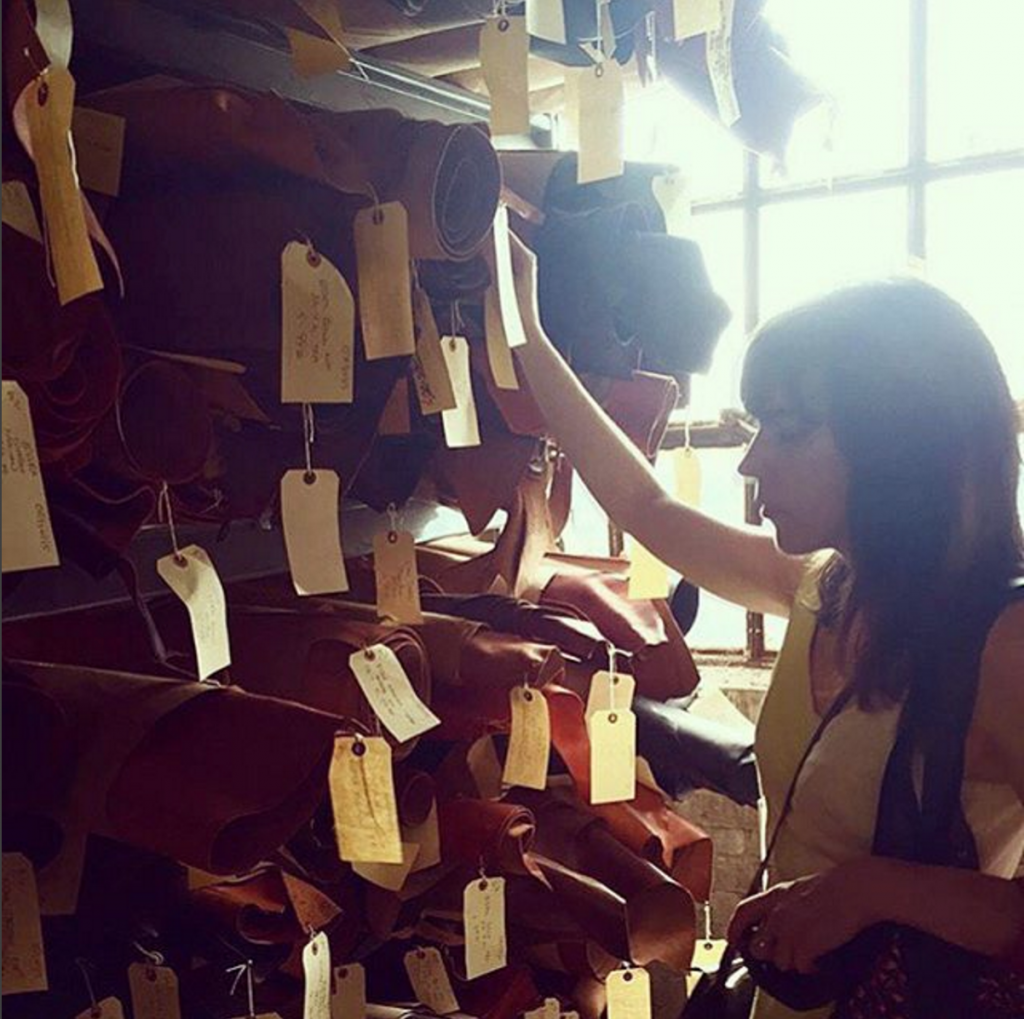
Jamie at Horween
Working in Production Mode, Jamie makes an effort to pay the workers a living wage and minimize fabric waste through ethical manufacture. She believes that if garment workers and artisans are not paid well enough, garment work techniques and authenticity will be lost over time. Consequently, Jamie and her team only produce in small batches to ensure the clothing’s quality and reduce waste from making clothes. Even though the fashion industry is initially structured to rely on worker’s exploitation, Jamie challenges the industry’s norm by following the slow fashion model.

High Contrast Patchwork Wrap

Low Contrast Patchwork Wrap
Nevertheless, fast fashion is the most profitable section in the fashion industry since it is the primary model that efficiently utilizes the existing exploitation in the industry. The margin is slim for both workers and contractors. Hence, the only benefit from fast-fashion corporations. These brands push for faster delivery and faster clothes. Therefore, making trendy and cheap pieces of clothing is attainable from exploiting the workers. With the low prices, customers can purchase trendy clothes faster. However, the clothes are also faster to get ruined and thrown away due to the low quality. In other words, the fast fashion industry is the epitome of environmental destruction.
Some would say fashion is meant to be a cycle of trends. We can see the cycle through the popularity of vintage clothing in recent years. At the end of our interview, I asked Jamie a fun question, “As vintage fashion makes a comeback, do you have any predictions for what specific piece of the era will be trending next?” She giggled and said, “Big shoulders and quirky clothes from the 80s might be the next trend due to the fun gender fluidity. Considering how everyone has been in a long quarantine, they would explode with more fun patterns and creativity once we’re done with this quarantine.” Thus, the nature of fashion doesn’t require us to wear only trendy clothes. As trends come and go, we only need quality clothes that fit our style.
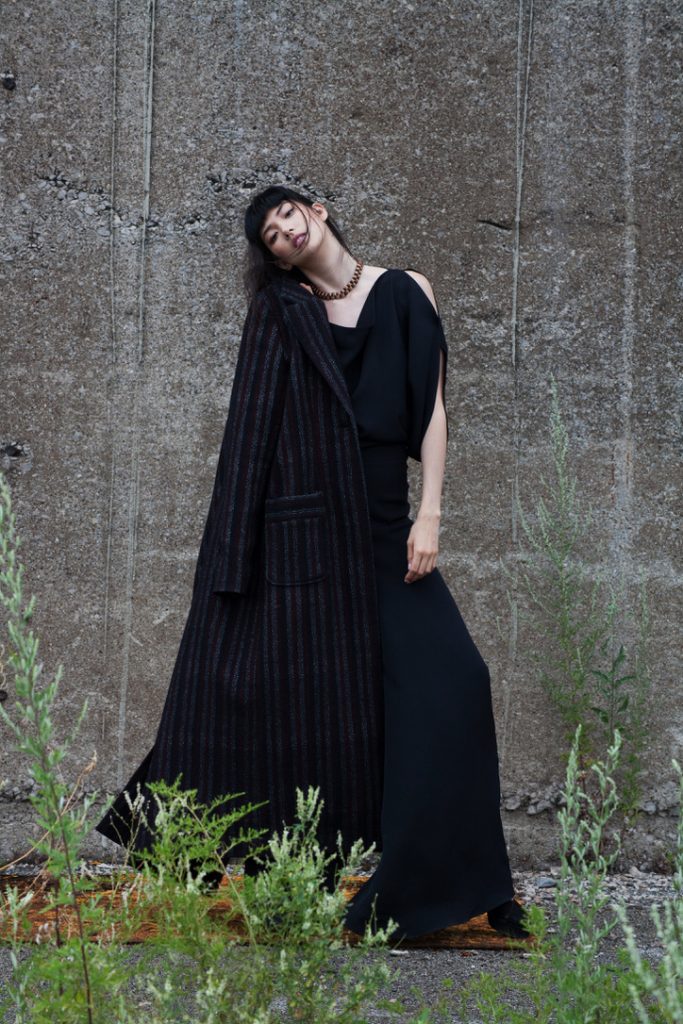
Production Mode Fluid Jumpsuit in 4-ply Silk Crepe and Maxi Coat in custom-woven Wool & Cotton Felt from The Weaving Mill. Photo by Carlos Moore. HMU by Lia Rivette. The model is Rebecca Uy.
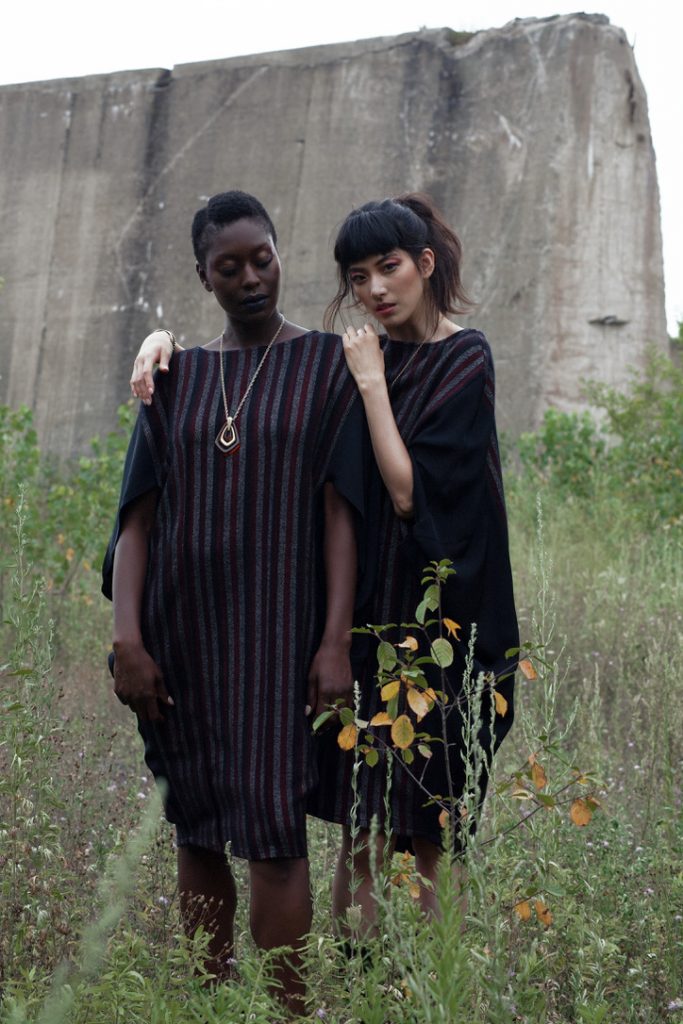
Mode Tunic in Custom Woven Wool/Cotton Textile and 4-Ply Silk Crepe. Photo by Carlos Moore. HMU by Lia Rivette. Models are Akuba Erzumiah (L) and Rebecca Uy (R)
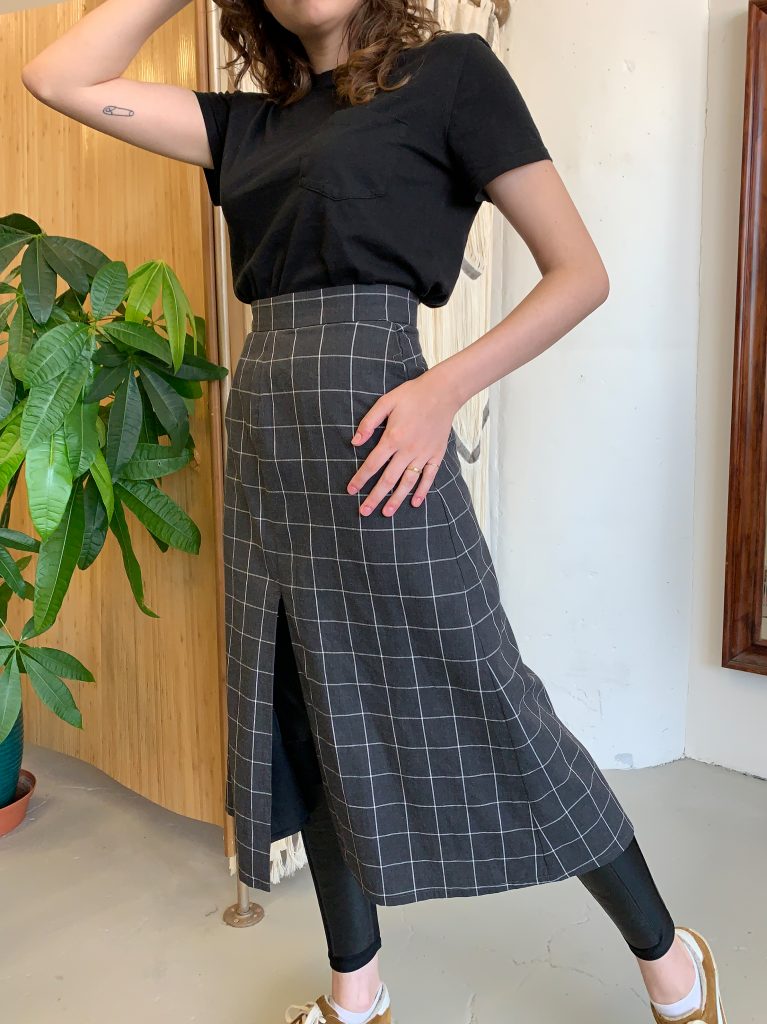
Split Skirt in Japanese Cotton
With slow fashion, clothes are made with more quality materials such as wool, vegetable leather, and cotton. Moreover, in Production Mode, Jamie focuses on the practicality and timeliness of the clothes, which expands its usage time for the owner. Between delivering quality clothes and supporting the community, Jamie manages to execute both of these missions through Production Mode. At the beginning of the pandemic, Jamie and her team worked with local designers such as Anna Brown, The Weaving Mill, Anna Hovet, and Wufka to make and donate masks.
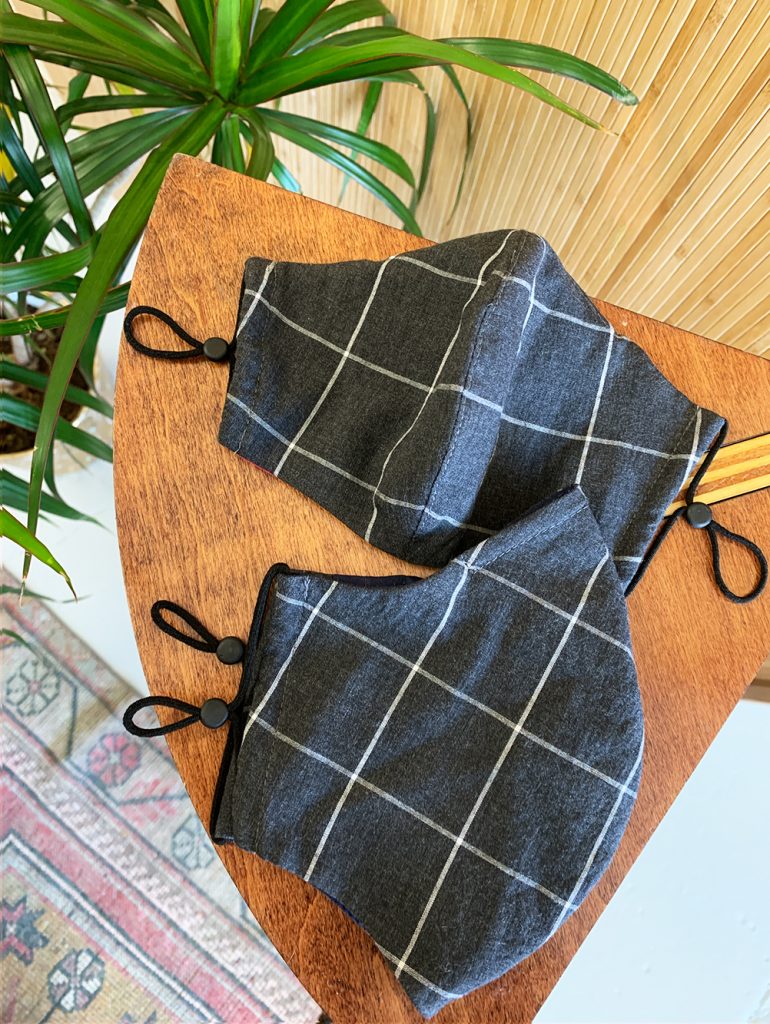
Production Mode Japanese Cotton Face Masks
In April 2020, they produced 3,000 masks and donated them to hospitals, homeless shelters, and frontline workers. To accomplish this process, they had a mutual aid model in which one would cut, another would pick up and deliver materials, others would sew, and others would distribute masks. Hence, the process demonstrates how Jamie utilizes slow fashion as a resource to contribute back to the community. According to Jamie, “It was truly a beautiful project, and I can say that in addition to helping in this small way to keep our community safe, it also kept us sane and feeling connected and uplifted during that challenging time.”
In October of 2020, Production Mode also began to sell masks commercially. With each mask sold, they donate a mask to Brave Space Alliance. Besides making masks, they also spent a lot of time and effort rebuilding their website to make online shopping more accessible for the customers.
Production Mode: www.productionmodechicago.com/shop







